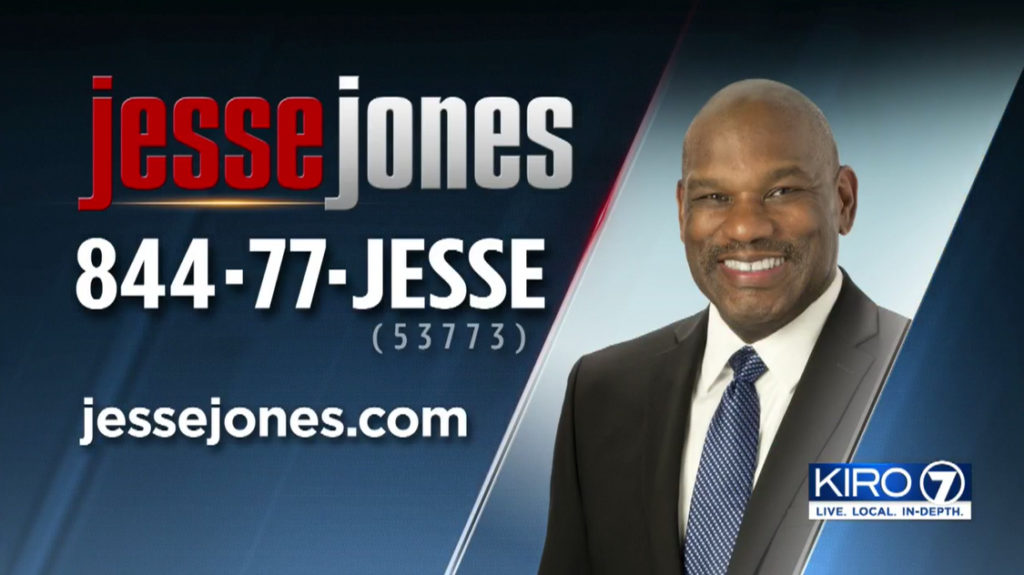KIRKLAND, Wash. — A simple request for a bag has Stephanie Yeazell feeling taxed.
“And he said that’s nine cents. And I said nine cents? The bag fee is eight,” remembers Yeazall. “And he said ‘it’s taxable.’”
Yep, Dan Schacher, from Ken’s Market in Seattle, says the state’s bag fee which was enacted last fall is subject to sales tax.
“Every eight cent bag is a nine cent charge. Every time. And if it’s a double bag, that’s eighteen cents,” says Schacher.
To some it’s just pennies. But not to Yeazall.
“It’s not pennies when you multiply it by the amount of commerce that goes on in the state in a day, or a week, or a month,” she says. “I have a problem with the taxing of a fee. To me that’s just another way to stick your hand in somebody’s pocket.”
Why is the state taxing a fee?
State Representative Strom Peterson wrote the first bag law in the state as a councilman for the city of Edmonds more than a decade ago. And he sponsored the state bill that banned single-use plastic bags and imposed the fee. And that tax on it.
“So really the way it’s set up is they are selling that bag. So that bag is a sale. So in this state we tax sales,” says Peterson.
His goal is singular:
“This law will reduce the factor of plastic bags in Washington by millions. Literally millions of bags of those thin little plastic bags won’t be used in Washington,” says Peterson.
But is the law working for grocers?
“We haven’t really seen more people bring their own reusable bags. The volume of paper bags that come out of the store are about the same,” says Schacher.
His Ken’s store goes through 17,000 paper bags a month. But he doesn’t break even on the sale.
“No, these paper bags here cost us 26 cents a piece,” says Schacher.
And according to the department of ecology, the law impacts almost all retail businesses.
“Clothing stores, McDonalds, so most any restaurant/retail that does takeout. Mom and pop gas station quick-stops. Truck stops,” says Laurie Davies, solid waste program manager for the Department of Ecology.
Her agency enforces the bag ban.
“Thin film plastic bags and they need to be replaced by reusable bags by customers or customers can buy a paper bag that has 40 percent recycled content to it, or thicker-filmed plastic bags,” says Davies.
Where does the money go?
“I’m curious who gets the tax. I’m curious whether the city gets the tax, or the state gets the tax. Or whoever gets it,” says Stephanie Yeazell.
The fee goes to the business to help offset the cost of the bags.
The sales tax? Yeazell lives in Kirkland - which is in King County - so the majority of that 10.1 percent sales tax rate goes to the state and the Regional Transportation Authority.
We’ve seen businesses that should be charging the bag fee and they don’t. But because of Covid, the enforcement roll-out has been slow. Since no-one’s been taken to task yet, I won’t be a snitch.
But I know who you are.
Is the bag ban helping?
“Yes! This is a big deal,” says Heather Trim with the non-profit Zero Waste Washington.
She says if we don’t get a handle on the plastic bags, we’re all going to pay because of dangerous micro-plastics that leech into our waterways.
“I think we’re at that moment. I think we’re at the tipping point,” says Trim.
And so will this sea of change really make a difference?
According to Dr. Erin Meyer, director of conservation programs at the Seattle Aquarium, the answer is yes.
She says plastics - like from bags - get into water, and fall apart to create microplastics.
“Take a deep breath. Take a sip of your coffee. You’re having some microplastics with your breakfast every morning. You’re having some microplastics every time you breathe in. We know that we’re breathing and drinking and eating microplastics every single day. So are the animals that live in the ocean, from the smallest larval fish all the way up through our Orca whales,” says Dr. Meyer.
So the bag fee is taxed.
And the current solution to all of this is in the… TRUNK!
That’s where the reusable bags are! So use them!
The state has received over 300 complaints since the law’s inception. The fine is 250 dollars per incident. No one has been fined yet.
But I can tell them where to start looking…

Email Jesse right now at consumer@kiro7.com
©2022 Cox Media Group





